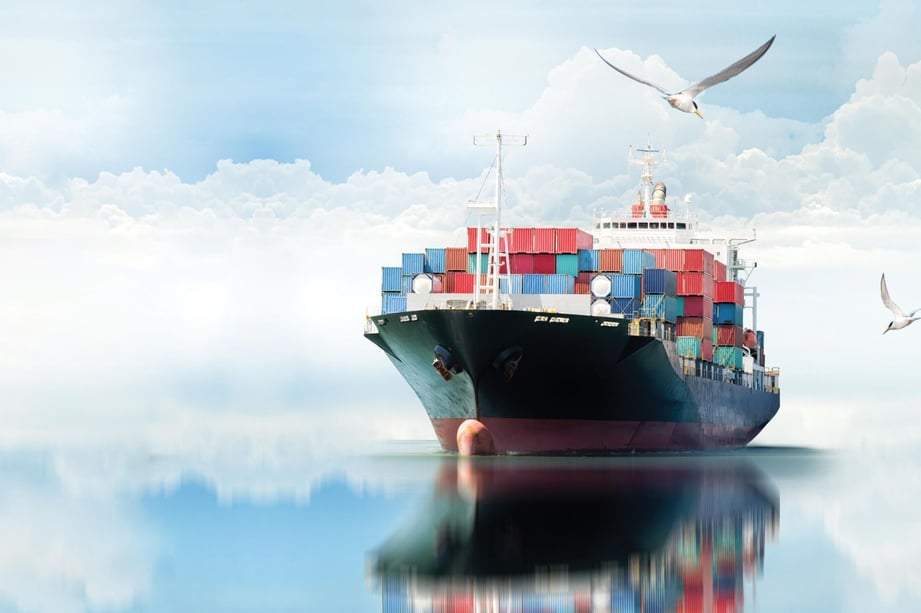When it comes to international trade, it's important to understand the different shipping terms used. One such term is CIF, which stands for Cost, Insurance, and Freight. In this article, we'll take a closer look at what CIF means and pricing, as well as the responsibilities of buyers and sellers, advantages and disadvantages for buyers, and when to use a CIF agreement. We'll also answer some common CIF agreement FAQs and provide expert guidance.
How is CIF defined in Shipping Terms?
CIF stands for Cost, Insurance, and Freight. This term is used to indicate that the seller is responsible for the cost of the goods, insurance, and freight charges up to the port of destination. CIF is commonly used in international trade agreements and specifies that the seller is responsible for delivering the goods to the port of destination.
What are the Buyers and Sellers Responsibilities with CIF Agreements?
CIF agreements have specific responsibilities for both buyers and sellers. Let's take a closer look at each one.
Sellers Responsibilities
The seller is responsible for:
-
The cost of the goods
-
The cost of freight to the port of destination
-
The cost of insurance for the goods while in transit
-
Preparing and delivering the goods to the shipping port
Buyers Responsibilities
The buyer is responsible for:
- Paying the price of the goods
- Import clearance and customs duties
- Unloading the goods from the ship
- Transporting the goods from the port of destination to their final destination
Advantages and Disadvantages for the Buyer
CIF agreements offer several advantages for buyers, such as reduced risk, lower costs, and ease of shipping. However, there are also some disadvantages to consider, such as lack of control over the shipping process, potential for hidden costs, and the need to be familiar with customs procedures.
When to Use a CIF Agreement?
At first glance, one may believe that the CIF (Cost, Insurance, and Freight) agreement is not a desirable option for sellers. After all, why would they want to shoulder extra liability when there are other alternatives available that can distribute the risk to other parties?
However, upon closer examination, some sellers may prefer the CIF agreement for several reasons.
- Firstly, assuming all liability costs and associated fees can lead to higher profit margins for the seller. This increase in profit margin is due to the trade-off of taking on the risk.
- Secondly, as sellers assume the liability risks with CIF, they have more control over the shipping process, allowing them to design or modify their shipping strategy for maximum profit and minimal loss.
Therefore, in cases where the inherent risk in the shipping process is low, sellers have a trustworthy team to handle the shipment, and significant profit can be made, CIF may be the preferred choice.
CIF agreements are typically used when the buyer wants to reduce risk and ensure that the goods are delivered to the port of destination without any damage or loss. If the buyer is unsure of the product's export requirements, CIF obligates the seller to ensure their products can be correctly exported.
Risks of Using Incoterms 2020 CIF
While CIF can be a lucrative option, certain scenarios may make sellers hesitant to use this agreement.
One such situation is a lack of trust in the buyer, especially if they are unknown and may engage in deceitful behavior to back out of the deal. Despite the potential legal remedies available, the time and effort expended can pose challenges for the seller.
Additionally, if the seller is working with a new crew or employees, they may be wary of assuming the lion’s share of liability for the shipment.
Finally, if the seller’s company is considerably smaller than the buyer's, the higher risk may make the CIF agreement less desirable. While these circumstances may be infrequent, sellers should thoroughly evaluate the potential risks before agreeing to a CIF contract.
CIF Agreement FAQ’s
- Does CIF include duty?
No, CIF does not include duty. The buyer is responsible for paying any customs duties or taxes that apply to the imported goods.
Incoterms 2020 CIF: Spotlight on Cost, Insurance and Freight
Incoterms 2020 CIF is a set of updated rules for international trade that specifies the responsibilities and risks associated with CIF agreements. Let's take a closer look at cost, insurance, and freight responsibilities and risk.
Cost, Insurance and Freight Responsibilities and Risk
The seller is responsible for all costs associated with the goods up to the port of destination. This includes the cost of the goods, freight charges, and insurance while in transit. The risk of loss or damage to the goods transfers to the buyer at the port of origin, once goods are on board the vessel.
Cost, Insurance and Freight Transportation Options
CIF Incoterms is to be used only for sea or inland waterway transport. Where more than one mode of transport is to be used, which will commonly be the case where goods are handed over to a carrier at a container terminal, the appropriate rule to use is CIP rather than CIF.
Using Cost, Insurance and Freight
CIF agreements can be a good option for buyers who want to reduce their risk and ensure that goods are delivered to the port of destination safely and securely. However, buyers should be aware of their responsibilities and the potential for hidden costs.
Subscribe to the Newsletter!
If you're interested in learning more about CIF agreements, be sure to subscribe to our newsletter. Our expert guidance can help you navigate the complexities of international trade and ensure that your business runs smoothly.
USE THIS FREE TEMPLATE FOR A SHIPMENT
To use this FREE TEMPLATE for a shipment, click the "INCOTERMS CIF TEMPLATE" button below.







Leave a Comment